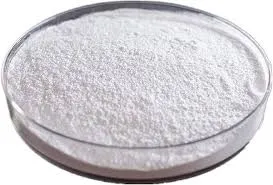
Nov . 22, 2024 15:52 Back to list
hydroxyethylcellulose natural
The Versatility and Benefits of Hydroxyethylcellulose
Hydroxyethylcellulose (HEC) is a non-ionic, water-soluble polymer derived from cellulose, a natural polymer found in the cell walls of plants. HEC is widely utilized across various industries due to its unique properties and versatility. This article aims to explore the key attributes of hydroxyethylcellulose, its natural origins, applications, and the benefits it provides to various sectors.
Natural Origins
Hydroxyethylcellulose is derived from cellulose, which is one of the most abundant organic polymers on Earth. The process of creating HEC involves reacting cellulose with ethylene oxide, resulting in the formation of hydroxyethyl groups. This modification enhances the solubility and ability to form gels, making HEC suitable for a multitude of applications. Despite being chemically modified, HEC retains many of its natural cellulose properties, making it a preferred choice for those seeking natural ingredients in formulations.
Physical and Chemical Properties
One of the most appealing aspects of HEC is its exceptional water-retaining capacity. It can absorb significant amounts of water, creating a thick and stable gel that aids in enhancing the texture of products. Furthermore, HEC is non-toxic, making it safe for use in personal care products, food applications, and pharmaceuticals. It also exhibits excellent rheological properties, allowing it to modify viscosity and improve the flow characteristics of various formulations.
Moreover, hydroxyethylcellulose is known for its thermal stability and resistance to changes in pH. This makes it an ideal thickening agent in formulations that may be subjected to different temperature conditions or acidic and basic environments. Its compatibility with a wide range of ingredients also sets it apart, allowing it to be seamlessly integrated into various formulations without compromising efficacy.
Applications of Hydroxyethylcellulose
Hydroxyethylcellulose is a multi-functional ingredient found in numerous products across a broad spectrum of industries
hydroxyethylcellulose natural

1. Cosmetics and Personal Care HEC is widely used in shampoos, conditioners, lotions, and creams to improve viscosity, spreadability, and texture. Its film-forming and moisturizing properties enhance the sensory experience of products while providing hydration to the skin and hair.
2. Pharmaceuticals In the pharmaceutical industry, HEC serves as a stabilizer and thickening agent in solutions and gels. It can be used in drug delivery systems, enhancing the bioavailability of active ingredients and ensuring a controlled release.
3. Food Industry HEC is employed in the food sector as a thickener and stabilizer. It can improve the texture of sauces, dressings, and dairy products while enhancing mouthfeel and preventing separation.
4. Construction and Paint Hydroxyethylcellulose is also utilized in the construction industry as an additive in cement, mortar, and stucco, improving workability and adhesion. Additionally, it acts as a thickener in paints, reducing drip and sag while improving the finish and texture.
5. Adhesives and Coatings HEC functions as a binder and thickener in adhesive formulations and coatings, enhancing adhesion properties and stability.
Environmental Considerations
As a derivative of natural cellulose, hydroxyethylcellulose is considered an environmentally friendly ingredient. Its biodegradability ensures that products formulated with HEC do not contribute significantly to environmental pollution. With increasing consumer demand for sustainable products, HEC offers a natural solution that aligns with eco-friendly values.
Conclusion
In conclusion, hydroxyethylcellulose is a versatile and beneficial ingredient that has found widespread applications in various industries due to its natural origins and remarkable properties. Its multifunctional capabilities make it an essential component in the formulation of cosmetics, pharmaceuticals, food products, and construction materials. As industries continue to embrace sustainable practices and consumers seek natural ingredients, HEC stands out as a reliable and effective solution that meets these evolving demands. Whether enhancing the texture of personal care products or stabilizing food formulations, hydroxyethylcellulose proves to be an invaluable asset across the board.
-
Versatile Hpmc Uses in Different Industries
NewsJun.19,2025
-
Redispersible Powder's Role in Enhancing Durability of Construction Products
NewsJun.19,2025
-
Hydroxyethyl Cellulose Applications Driving Green Industrial Processes
NewsJun.19,2025
-
Exploring Different Redispersible Polymer Powder
NewsJun.19,2025
-
Choosing the Right Mortar Bonding Agent
NewsJun.19,2025
-
Applications and Significance of China Hpmc in Modern Industries
NewsJun.19,2025







